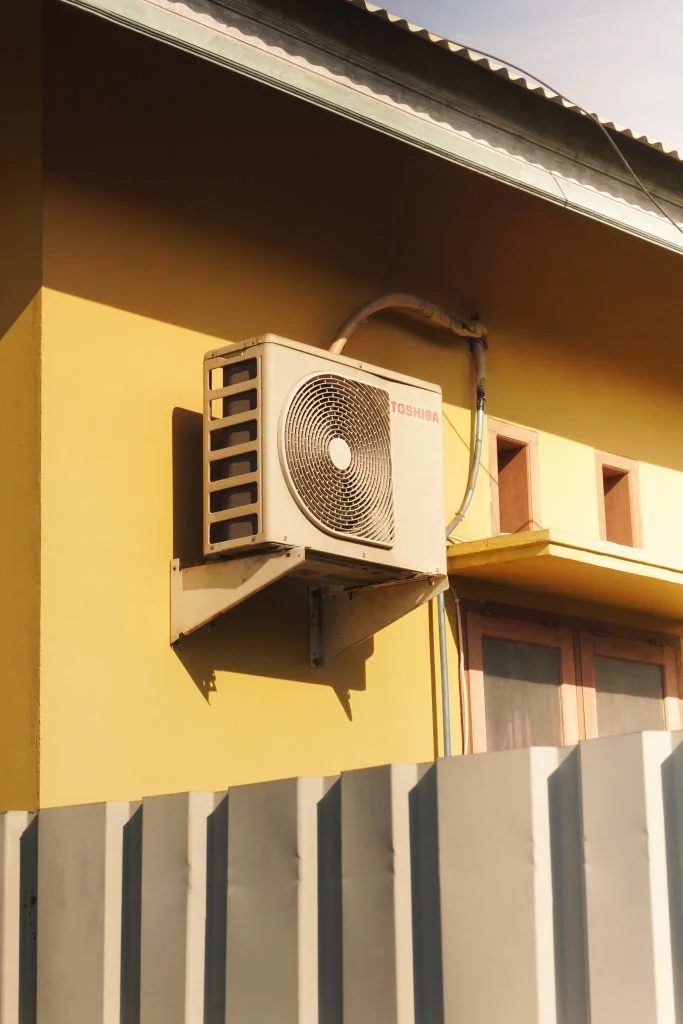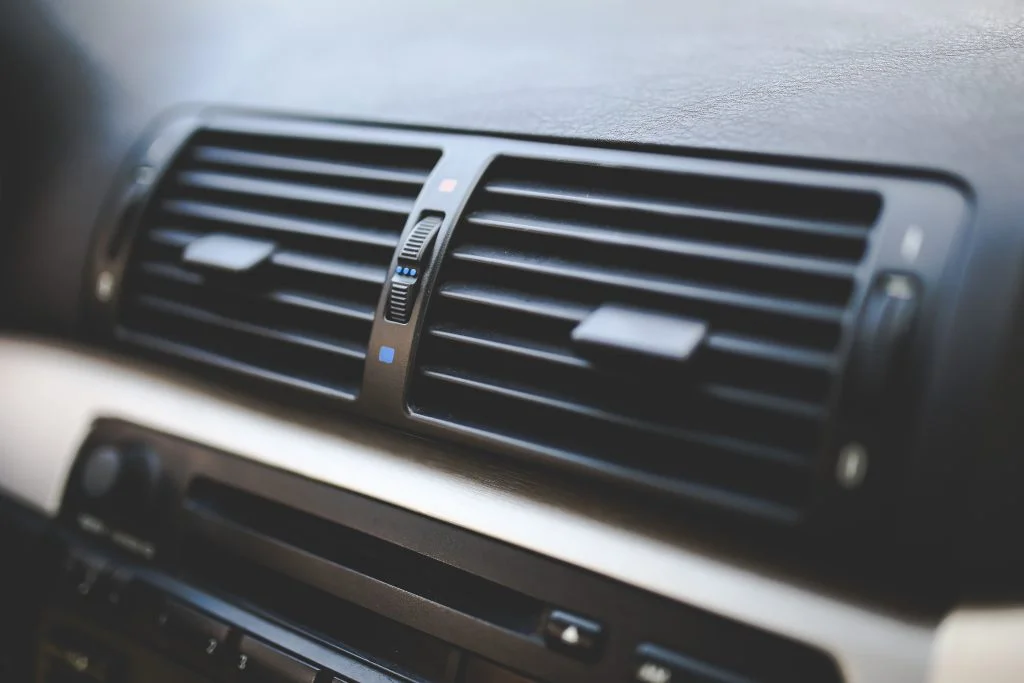Back in the summer of ’98, I made a life-changing discovery: the power button on my air conditioner! Who knew that tiny button held the key to a blissfully cool paradise? Before that, I was merely an overheated mortal, melting like cheese on a hot pizza.
Since then, I’ve spent years obsessing over every AC-related fact out there. So, are you ready to chill with some cool facts? (See what I did there?) Dive into the magic of this box that saves us from sweaty summer doom.
In a world of fans, be an air conditioner.
Unknown
Air Conditioner Facts
Before diving into the cool world of air conditioners, remember there’s a quiz waiting at the bottom. I created it for the A/C nerds out there. Stay frosty and read on if you want to ace it!
- The idea of air conditioning has roots in ancient Egypt, where moistened reeds were suspended in windows to chill the incoming wind.
- Willis Carrier is credited with creating the contemporary air conditioner in 1902, initially to manage moisture levels at a Brooklyn publishing house.
- The first air conditioner was primarily designed to stabilize paper by controlling humidity levels, rather than for human convenience.
- The phrase summer blockbuster was coined due to the advent of air conditioning in cinemas, drawing large audiences during hot summer months.
- Air conditioning units, equipped with heat pumps, can also serve to warm houses by reversing their operational mode.
- Modern air conditioners have evolved to utilize refrigerants that are more eco-friendly, unlike the older versions that used R-22 (or Freon), detrimental to the ozone layer.
- Besides cooling, air conditioners also purify the air by eliminating elements like dust, pollen, and various pollutants.
- The efficiency of air conditioners is gauged by the Seasonal Energy Efficiency Ratio (SEER), where a higher SEER denotes a more efficient device.
- Consistent maintenance is crucial for extending an air conditioner’s operational life and performance.
- Closing off vents in unoccupied rooms can adversely affect an air conditioning system’s performance.
- To balance comfort with energy conservation, it’s advised to maintain thermostats at 78°F (26°C) during warm periods.
- The word Freon, although a brand, is commonly utilized to refer to certain refrigerants.
- Air conditioning consumption can constitute a significant portion, over 10%, of total electricity usage in several nations.

- Inadequate installation practices could diminish an air conditioner’s efficacy by nearly 30%.
- Implementing measures like reflective roofing or ensuring homes are well-shaded can considerably cut air conditioning expenses.
- A single-degree reduction in the thermostat setting can escalate energy expenditures by as much as 10%.
- A compromised air filter can enhance an air conditioner’s energy usage by 5% to 15%.
- China dominates the global air conditioning market, contributing approximately half of the worldwide demand.
- Surrounding air conditioning apparatus with plants can optimize its functionality, provided they don’t obstruct airflow.
- Advancements in air conditioning have revolutionized architectural designs, facilitating the construction of elevated structures featuring integrated air systems.
- Evolution in air conditioning technologies has enabled the establishment of data centers, necessitating precise thermal regulations.
- Zone-specific air conditioning systems enable the customization of temperatures in various building sections, boosting efficiency and resident comfort.
- Employing shades or blinds on windows receiving direct sunlight can diminish air conditioning dependency and conserve energy.
- Air conditioning is essential for preserving certain medicines and chemicals, as well as for facilitating numerous industrial operations.
- Initially a luxury, air conditioning has evolved to become an indispensable amenity in numerous global regions.
- The proliferation of air conditioning was instrumental in Florida’s transformation into a populous hub in the 20th century.
- Air conditioners may generate condensation, which, unless properly handled, could foster mold proliferation.
- The Packard Motor Car Company unveiled the first automobile featuring optional air conditioning in 1939.
- Regularly toggling an air conditioner on and off can compromise its longevity and operational efficacy.

- Evaporative coolers, also known as swamp coolers, present an efficient alternative to conventional air conditioners, particularly in arid environments.
- The cooling capacity of an air conditioner is dictated by its BTU rating rather than its physical dimensions.
- VRF (Variable Refrigerant Flow) systems are gaining traction in commercial spaces due to their superior energy conservation and temperature regulation capabilities.
- Increasing global temperatures are expected to surge the demand for air conditioning, predominantly in emerging economies.
- In certain nations, air conditioning is classified as a luxury, attracting luxury levies.
- Excessive reliance on air conditioning can precipitate ‘sick building syndrome,’ characterized by a concentration of pollutants in enclosed spaces.
- Power plants in the U.S. release approximately 100 million tons of CO2 annually due to air conditioning utilization.
- During heatwaves, concurrent air conditioner operation across numerous households can overload power grids, resulting in outages.
- The emergence of Hydrofluorocarbons (HFCs) as substitutes for detrimental CFCs in air conditioners has been a sustainability milestone, despite their greenhouse effect.
- Enhancing the thermostat setting of an air conditioner by a single degree Fahrenheit can curtail energy expenditures by about 3%.
- Contemporary air conditioners are equipped with innovative features that enable remote operation via smartphones or integration into home automation frameworks.

- Indoor foliage can augment air purification, synergizing with the filtration capabilities of air conditioners.
- Projections suggest that by 2050, air conditioners could be prevalent in two-thirds of global households, with nations like India, China, and Indonesia spearheading this trend.
- While air conditioning enhances comfort, its overuse, particularly in poorly ventilated spaces, can provoke issues like dry skin and dehydration.
- Enhancements in insulation techniques and architectural innovation can substantially mitigate dependency on air conditioning.
- Certain airports, such as Singapore’s Changi, leverage air conditioning technologies to temper outdoor temperatures, improving comfort in tropical settings.
- Air conditioning systems employing inverter technologies are adept at modulating their operational intensity based on cooling requirements, optimizing energy efficiency.
- Historically, in the absence of pervasive air conditioning, varied schedules were adopted to circumvent exposure to peak heat periods.
- Research indicates that office productivity is optimized when ambient temperatures are maintained within 72°F (22°C) to 78°F (26°C).
- Charles Gates commissioned the construction of the first entirely air-conditioned residence in Minneapolis in 1913.
- Moving between extremely divergent temperatures can induce thermal shock, manifesting in symptoms such as muscle spasms and, occasionally, severe health implications.
Air Conditioner Myths

There are many myths about air conditioners. About their power consumption and about the possible health problems related to their usage. Let’s see some of the most popular myths about them.
- Turning the AC down super low cools your home faster.
Air conditioners cool at a consistent rate. Setting the temperature very low won’t speed up the process. It might just end up running longer and wasting energy. - Leaving the AC on all day uses less energy than turning it off and on.
Letting your AC run constantly often uses more energy than allowing the temperature to rise when you’re not home and cooling it down upon your return. Programmable thermostats can help manage this more efficiently. - Ceiling fans help cool rooms, even when you’re not in them.
Ceiling fans cool people, not rooms. They circulate air, which helps with evaporation from your skin, making you feel cooler. When you leave the room, it’s best to turn them off to save energy. - Cracking windows open while the AC runs will bring in fresh air.
Opening windows while your AC is on allows warm air to enter and makes the unit work harder. It’s counterproductive and can lead to increased energy bills. - Regular maintenance isn’t necessary if the AC is cooling properly.
Even if your AC feels fine, regular check-ups can catch potential issues before they become big problems. Plus, clean and well-maintained units run more efficiently, saving you money in the long run.
No products found.
Air Conditioner FAQ

We are almost at the perfect temperature of knowledge. Let’s see some of the most-asked questions online before we move on to the quiz.
- Are air conditioners bad for the environment?
Absolutely, in a few ways. Traditional A/Cs use gnarly refrigerants that harm our ozone. Plus, they guzzle energy, which often isn’t green. - Is air conditioning bad for you?
Not always, but dirty A/Cs can be. Mold and bacteria party in unmaintained units, which isn’t great for our lungs. Overdoing A/C can also make us wimps in the heat! - When did air conditioning become common?
Ah, the cool comforts of the 20th century! A/C became a household staple in the 1950s and 1960s. Before that? Fans and icy lemonades. - When was AC invented in cars?
Picture this: It’s the 1930s, and Packard Motor Car rolls out the first car A/C. But the big A/C car boom? That was around the 1950s and 1960s. - When was the first air conditioner made?
1902, thanks to our man, Willis Carrier. Born to help print plants, this game-changer laid the foundation for our modern chill vibes.
Air Conditioner Trivia

I don’t know if you are a nerd about things, but I know that I am one. So I created a quiz about our lord and savior of the heat beast. Fail to answer correctly, and you might just find your AC turning into a heater this summer!
Conclusion
And there you have it. A big list of facts and myths about AC. I think all this knowledge made you go from 0 to an AC hero today.
As for my closing question: If you had to name your AC after a famous person, who would it be?


